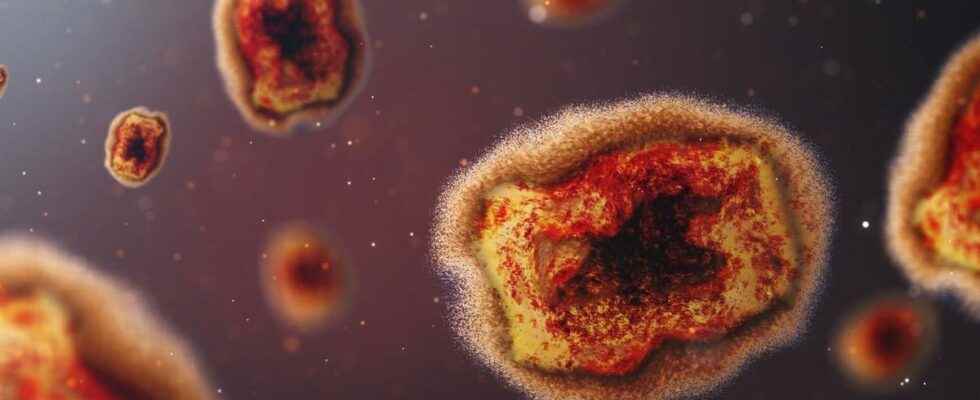Published on
Updated
Reading 1 min.
A particularly serious form of monkeypox, also called “mpox”, has been identified in patients infected with HIV, to the point of being often fatal in those who are at the AIDS stage, according to a study published Tuesday.
“A severe, necrotizing form of mpox (may) resemble an AIDS-defining illness“, summarize the authors of this study published in the Lancet.
The monkeypox epidemic, which spread around the world in 2022 before largely subsiding, mainly affected men in homosexual relationships.
However, it is a population where there is a greater proportion of people infected with HIV, the virus which at the most advanced stage triggers AIDS by affecting the patient’s immunity and making him vulnerable to a series of diseases. .
In this context, researchers have been interested in the particular risks posed by monkeypox in patients already infected with HIV.
The authors of the study have thus studied the case of nearly 400 patients infected with both HIV and mpox.
They, in their case, identified a very severe form of the disease, which they called “fulminating mpox“.
This form, which focuses on patients where the HIV infection is at an advanced stage, results in massive necrosis of the skin, genitals, and even the lungs.
It caused the death of 27 patients. All had exceeded the threshold generally used to speak of AIDS: less than 200 CD4 T lymphocytes per mm3 of blood.
These deaths alone represent a high proportion of the hundred deaths recorded in the context of the epidemic, out of several tens of thousands of cases.
For the researchers, these conclusions should encourage health authorities to give priority to vaccinating people with HIV against mpox.
They also call for this severe form of mpox to be added to the list of AIDS-defining illnesses. This includes around fifteen pathologies which are deemed to be specifically dangerous in the event of advanced HIV infection.
